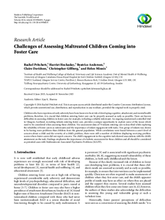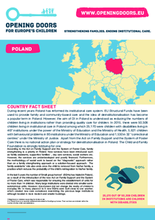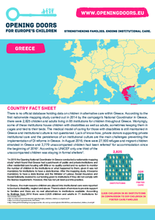Displaying 1701 - 1710 of 2221
The current study employed interpretative phenomenological analysis to explore 18 in-depth, qualitative interviews from six participants on the meaning and experience of motherhood among teenage mothers in the United States in foster care in the and in the years immediately after ageing out.
This paper presents findings from a qualitative study exploring the views of 26 children, aged 6–17 years, about their participation in the child protection system in England.
This paper uses findings from interviews with 169 children and young people across 11 local authorities in England and 5 Social Work Practices (SWPs), undertaken as part of a 3-year national matched control evaluation of pilot SWPs, to identify key elements of good quality practitioner relationships with children or young people.
This report provides an evaluation of the Keeping and Finding Families Project, a pilot foster care project in Tajikistan.
This paper builds on a recent evaluation of the piloting of the continental European model of social pedagogy (SP) in English residential care. It does three things: it considers the theoretical social policy literature on policy transfer and its implications; discusses European residential care for children and the discipline of SP; and reflects on these debates and the situation of children's residential care in England.
This video by Child's i Foundation in Uganda document's the journey of a little girl, Praise, from being abandoned to being placed into to a permanent family. The video shows the tracing process and temporary placement with a foster car
To meet the demand for high quality trainer's training programs in the group care sector, Fairstart Foundation designed an online education program for training groups of caregivers.
Children who have experienced early adversity have been known to be at risk of developing cognitive, attachment, and mental health problems; therefore, it is crucial that children entering foster care can be properly assessed as early as possible.
This Country Fact Sheet discusses Poland’s recent reforms to its institutional care system.
According to this Country Fact Sheet focusing Greece, there is no database holding data on children in alternative care in Greece.




